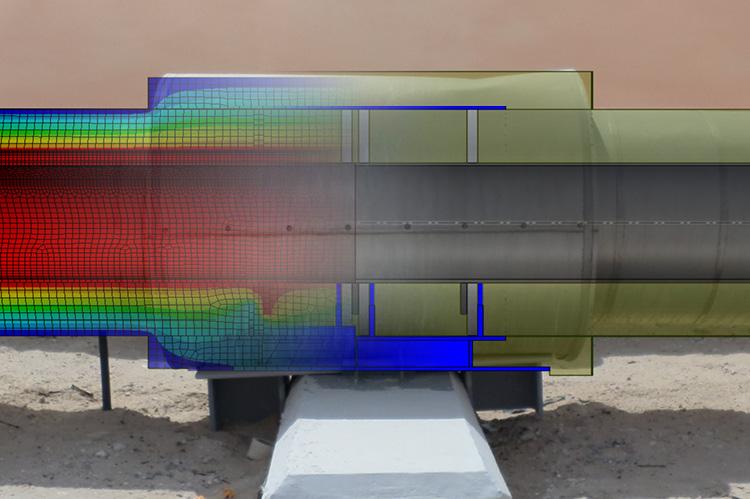Current View of Design and Evaluation of Sulfur Pipelines

The global production of natural gas is increasing continuously leading to development of gas fields with challenging contents such as sour gas containing highly toxic hydrogen sulfide. In a process called “gas sweetening” the hydrogen sulfide is removed, yielding liquid elemental sulfur. This substance is not just a by- product of the natural gas production. A multitude of industries rely on elemental sulfur as a raw-material to be used in various chemical processes and products.
Transporting liquid sulfur away from the gas extraction site raises the necessity for an infrastructure capable of dealing with the unique properties of this substance at elevated temperatures. Liquid sulfur can only be pumped in a limited temperature interval. Lower temperatures lead to solidification, higher temperatures will cause the sulfur’s viscosity to increase rapidly. Additionally, sulfur’s volume increases significantly during phase transition from solid to liquid.
A pipeline system transporting liquid sulfur that must satisfy a characteristic set of demands. Hydraulic design ensures the proper operation parameters to meet the capacity requirements of the pipeline system. Thermal design’s core task is to ensure that the system can not only maintain the operation temperature and prevent heat loss but also provide additional input of thermal energy whenever needed. To manage the thermal stresses arising in pipelines operating at elevated temperatures appropriate mechanical design needs to be conducted. In a re-melt scenario the solid sulfur inside the pipeline needs to be liquefied. This poses additional requirements.
Each of these demands and tasks such a pipeline system needs to satisfy (including boundary conditions dictated by the extraction plant) must be met with a specific and customized technological answer.
Here, the authors provide a comprehensive overview of the challenges and selected technological approaches in the design and assessment of a liquid sulfur pipeline system.

